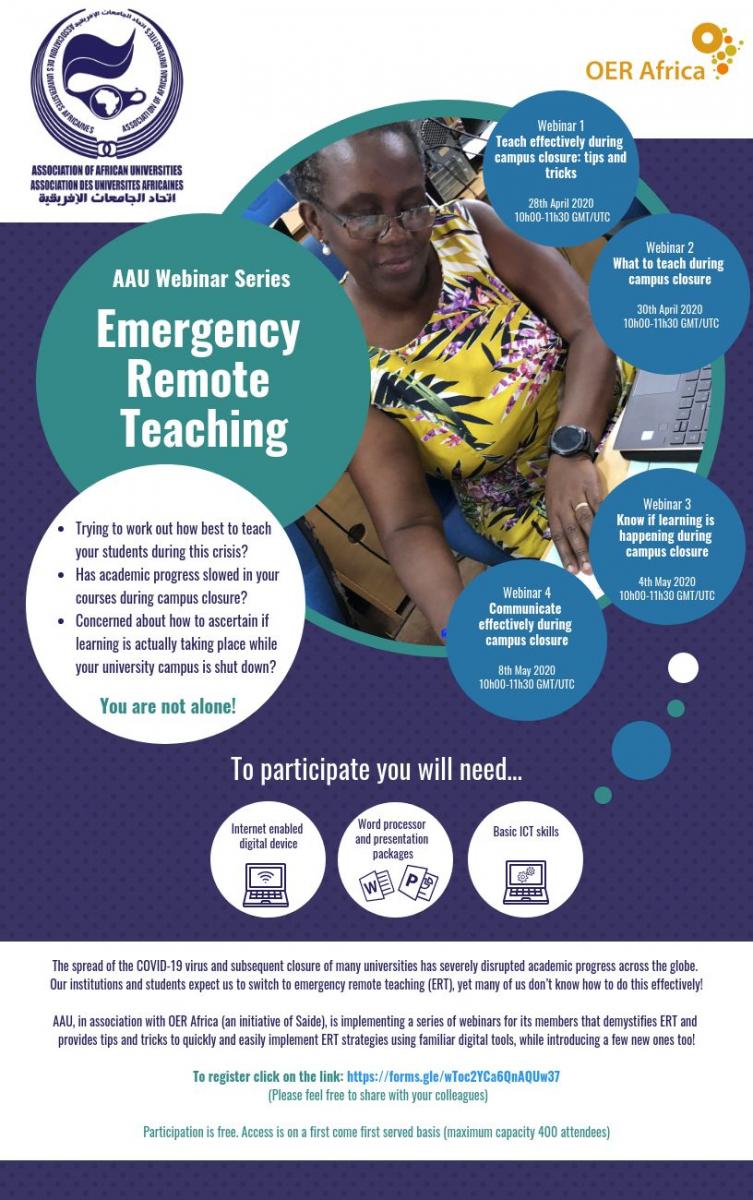Trying to work out how to best teach your students during university shutdowns due to the COVID-19 crisis? Sign up for a webinar series on Emergency Remote Teaching, hosted by the Association of African Universities (AAU) and OER Africa.
Register here https://forms.gle/wToc2YCa6QnAQUw37

